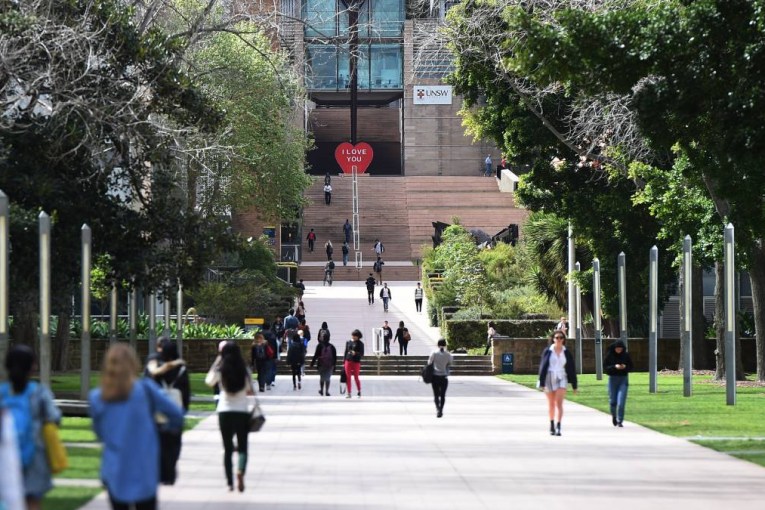Explainer: how the surrogacy industry works

The story of six-month old baby ‘Gammy’ born to a surrogate mother in Thailand and allegedly abandoned by Australian parents has captivated Australia.
The plight of Gammy, who has down syndrome and a hole in his heart, has prompted calls for reform of surrogacy services in Australia.
Here’s the state of surrogacy in Australia right now:
What is surrogacy?
Surrogacy is an arrangement between two parties, where a woman, the surrogate, agrees to carry a baby to term for the child’s intended parents.
• Surrogacy ‘might be banned’
• Gammy biological father in ‘sex assault’ twist
Gestational surrogacy is the most popular form of surrogacy, in which an IVF embryo is implanted into the surrogate. This means that the baby is genetically unrelated to the surrogate mother.
Traditional surrogacy relies on the surrogate mother’s egg, which means that the baby is genetically related to the surrogate.
Surrogacy in Australia
While women can volunteer to be altruistic surrogates, commercial surrogacy for profit in Australia is illegal, which has lead to couples seeking surrogacy overseas.
Laws around commercial surrogacy in Australia are confusing, with different rules for each state, according to a Fairfax report.
It is illegal in New South Wales, the ACT and Queensland to pay a woman overseas to be a surrogate mother. Commercial surrogacy is criminalised in Western Australia, South Australia, Tasmania and Victoria. The Northern Territory doesn’t regulate it.
Stephen Page, a surrogacy lawyer with Harrington Family Lawyers in Brisbane said that it was better to have surrogacy in Australia where it can be regulated.
“It’s an absurdity to suggest these bans will stop Australians from going overseas. It’s better that we do it here and regulate it,’’ he said.
The Federal Government has expressed concern over surrogacy overseas and cases like baby Gammy’s, but says that commercial surrogacy laws are the responsibility of states.
The business
Surrogacy Australia estimates that 500 Australian babies are born to surrogate mothers overseas every year.
According to an ABC report, $30,000 is the the average cost of employing a surrogate in Thailand. It is believed that $7,000 of that goes to the surrogate mother, with the rest going to the doctor and fertility clinic.

Gammy with ‘brother’. Photo: Supplied
The demand for surrogacy in Thailand by Australians is believed to have increased by 500 per cent in the past year.
This is partly due to the strengthening of regulations in India, which was another well-known surrogacy centre.
Thailand’s ruling military signalled a crackdown on the surrogacy business in Thailand, which they said should be restricted to married couples using a relative.
Surrogacy laws in Thailand
Surrogacy in Thailand is largely unregulated, with no laws directly related to to the practice of surrogacy, according to a Wall Street Journal report.
The army general running the country says that best practice exists in the industry, but is rarely adhered to.
The deputy director of Thailand’s Department of Health Service Support, Dr Tares Krassanairawiwong, believes there is confusion around what is legal.
“I understand there are some groups of people who don’t understand that legal framework in Thailand and exploit the opportunity,” he said.
According to a report by The Telegraph, the Thai government is considering new laws which would only permit heterosexual couples to undergo surrogacy.
Fears over Thai crackdown
Australian parents who are currently waiting for their babies to be delivered by Thai surrogates are said to be concerned over the introduction of new surrogacy laws.
It has been proposed that only altruistic surrogacy will be allowed, which would outlaw commercial surrogacy arranged by agencies.
According to a report by The Age, some parents have already sought legal advice in Australia and are prepared to take their case to the Thai courts to ensure that they can bring their baby home.
Are surrogate babies Australian citizens?
According to the Australia High Commission website, surrogate children born overseas are eligible to become Australian citizens through descent.
Children born overseas are eligible for Australian citizenship if at least one of their intended parents is an Australian citizen.
In the case of Gammy, his biological parents would have to start the application process for him to become an Australian citizen.
The baby has to be the biological child of the intended parent. Part of the application for citizenship involves DNA testing.
These requirements are also the same for American parents who have used overseas surrogates.
Rights for surrogate mothers
Surrogate mothers are often at risk of being mistreated by and underpaid by surrogacy agencies.
In the case of Gammy’s surrogate mother, Pattaramon Chanbua says that she has only been given half the amount she was promised by the agency after he was born.
Thai law still gives surrogate mothers some protection, with both unmarried mothers and couples the legal carers for the baby.
This is also the case in the UK, where surrogate mothers are the legal carer of the baby until the adoption is finalised.
Surrogate mothers in India have no legal rights when the baby is born.









